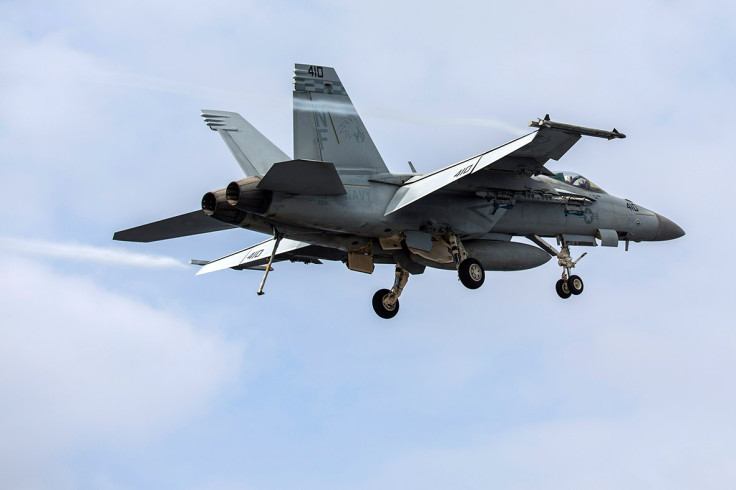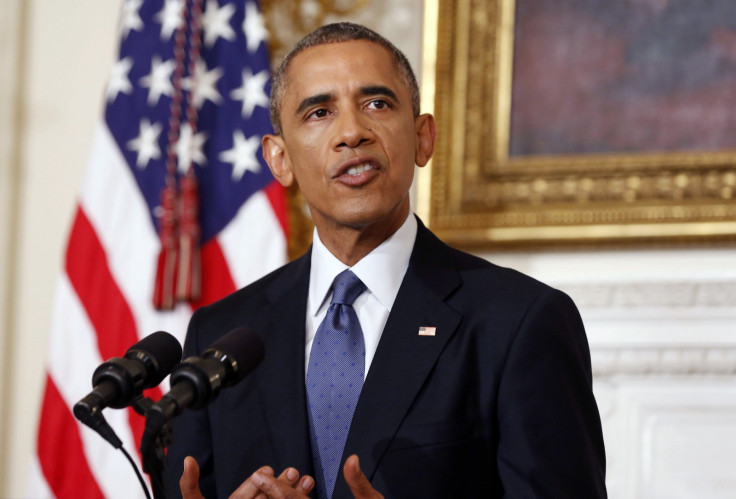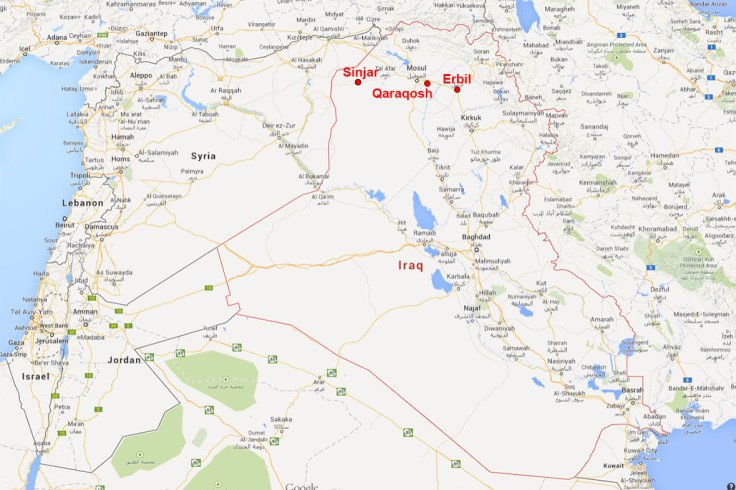Iraq: US Launches Air Strikes on Islamic State Militants Killing 'Hundreds'

The US military has launched air strikes against militants of the Islamic State in northern Iraq, according to the Pentagon.
Pentagon Press Secretary Rear Admiral John Kirby tweeted: "US military aircraft conduct strike on Isil [Islamic State] artillery. Artillery was used against Kurdish forces defending Erbil, near US personnel."
Two F-18 fighters dropped laser-guided 500-pound bombs on the mobile artillery target. Militants of the Islamic State were using artillery that has been abandoned by the Iraqi army when it fled to shell Kurdish forces defending the regional capital of Kurdistan.
US airstrikes were very small and very targeted and the Peshmerga Kurdistan forces are waiting for more strikes by the US fighter jets, according to reports.

Kirby said that the decision to strike "was made by the US Central Command commander under authorisation granted him by the commander in chief". The strikes took place at 6.45am EDT (10.45 GMT).
Khalid Jamal Alber, an official for the semi-autonomous Kurdish government in northern Iraq, said: "We thank Barack Obama". Iraqi army chief of staff Lieutenant General Babaker Zebari said he predicted "huge changes on the ground in the coming hours".
Rudaw, the leading news source on Kurdish affairs, said that US fighter jets had struck positions in the districts of Gwer and Makhmur in coordination with Kurdish peshmerga fighters.
According to the news outlet, the strikes killed hundreds of Islamic State fighters and wounded more. However, this could not be independently verified.
US military aircraft conduct strike on ISIL artillery. Artillery was used against Kurdish forces defending Erbil, near US personnel.
— Rear Adm. John Kirby (@PentagonPresSec) August 8, 2014It is the first time the US has been directly involved in a military operation in Iraq since they left the country in late 2011.
US President Barack Obama yesterday authorised airstrikes against the Islamic militants to prevent "a potential act of genocide" of religious minorities and to protect US interests in the region. Approximately 150 US advisers are situated in the Kurdish capital of Erbil.
"To stop the advance on Erbil, I've directed our military to take targeted strikes against Isis [IS] terrorist convoys should they move toward the city," he said in a speech at the White House.
"The only lasting solution is reconciliation among Iraqi communities and stronger Iraqi security forces."
The UN announced that it was working on a humanitarian corridor in northern Iraq to allow displaced people to flee the country.
BREAKING: Rudaw reporter: Hundreds of #IS fighters killed and wounded in US airstrikes in #Gwer.
— Rudaw English (@RudawEnglish) August 8, 2014The group have grand ambitions of extending their caliphate across the Middle East and forcing their radical ideology onto those of other faiths. Those who do not convert to their form of radical Islam have been summarily executed, imprisoned and chased out of their homes.

Nearly 100,000 Christians have been forced out of Qaraqosh - Iraq's biggest Christian town - by the group while the Yazidi Kurds face a humanitarian crisis after 200,000 fleed the town of Sinjar, 50,000 into the barren Sinjar mountains at risk of starvation and dehydration.
In June, IS captured large swathes of northern Iraq such as the cities of Mosul and Tikrit and now have their sights set on Erbil, the capital of the autonomous Kurdistan region.
Unicef's representative in Iraq Marzio Babille said the Yazidis were in a very dangerous situation because of the "very aggressive and brutal" jihadists.
© Copyright IBTimes 2024. All rights reserved.






















